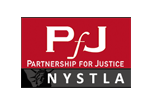The growth of the internet and related technologies has made it easier for people to keep in touch with one another, but the law has been slow to embrace such technology, particularly social media. Nowhere is this truer than in service of process, where in-person service is still the preferred method, and even delivering service to someone living at the same residence as the defendant is considered inferior. And yet, under some limited circumstances, courts have permitted people to serve defendants through social media.
Under the Federal Rules of Civil Procedure (FRCP), service of process must be delivered to a defendant by whatever means are most reasonably calculated to give the defendant notice of the lawsuit against them. Typically, this means that a summons and complaint should be delivered in person to the defendant, but for one reason or another, this is not always possible. The FRCP and their equivalent state rules, such as the New York Civil Practice Rules, offer several other potential means of delivering service of process, but even these can fail, especially when attempting to serve process on a foreign defendant.
For example, instead of being served to the defendant themselves, a qualified adult living at the place of residence of a defendant can accept service on their behalf, although this needs to be supplemented with service by mail. Alternately, service can be delivered to a registered agent of the defendant, or it might be necessary to use “nail and mail” service if even that is not possible. However, these are generally seen as inferior methods of service, even if they are acceptable by law.
But what happens when you are trying to serve process on a defendant and none of these methods work? For example, you could be trying to effect service on someone who does not have a permanent residence or place of employment, which can make tracking them down difficult. The contact information you have for them might be out of date or incorrect, or in the case of some businesses or nonprofit organizations, the information to locate them may not be public. Alternately, they may live in another country, where your ability to serve process on the defendant may be impeded by international agreements or local bureaucracy. In these cases, attempting to serve a defendant through social media may seem like a tempting prospect, but anyone who wants to try should be prepared to jump through many legal hoops.
A good example of this was in the case of DNC v. Russian Federation, et al., in which the Democratic National Committee (DNC) was attempting to sue the Russian government, along with a variety of other state and non-state parties, for the breach of their servers in 2016. One of the named parties in the suit was the organization Wikileaks, which disseminated emails allegedly stolen from the DNC’s servers, but the DNC found it difficult to serve process on the organization. This is due to a variety of factors, including Wikileaks having no public corporate structure, no clear place of business, and no attorneys who were authorized to accept service on its behalf. They had post office boxes in both Australia and California, but it was unclear whether Wikileaks used these for business, and its sole known public member, Julian Assange, was in hiding at the Ecuadorian embassy in London at the time.
It was only after pursuing every other available option that the DNC attempted to serve Wikileaks through Twitter, and that appears to have been key to its success on the issue. However, this is far from an ideal scenario, and the court made this clear: when serving defendants, the preferred methods are those specifically prescribed by the law. Alternative methods, such as using social media, are only for the most extreme circumstances, and for most plaintiffs, it should not even be necessary to consider in the first place.
The process servers at Nicoletti & Harris have provided service of process and litigation support for our clients since 1986, giving us the experience to handle the demands of the modern legal environment. We provide service for all areas of law, assisting clients throughout New York, New Jersey, and Florida. If you require a process server or other forms of litigation support, contact our New York office at (212) 267-6448, or you can contact our New Jersey office at (732) 677-3903, or you can visit our contact page.












